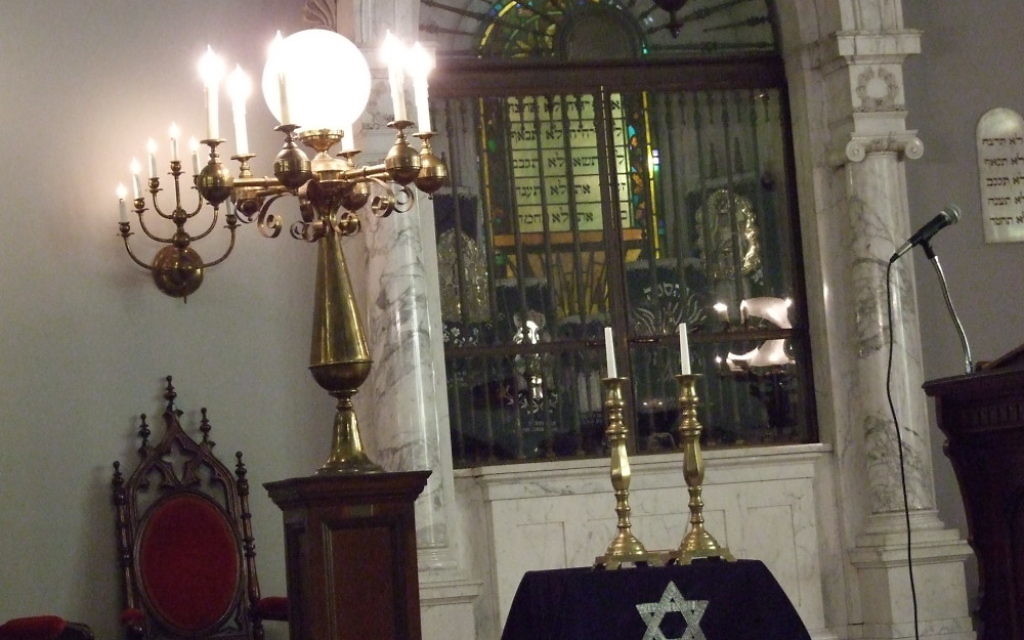Our Small-Town Southern Past
The first weekend in November offered an escape from the madness of the election season with the annual conference of the Southern Jewish Historical Society, held this time in Natchez, Miss.
The 40-year-old organization always presents an interesting, meaningful program, and it was typical that Jewish Atlanta was well represented among the presenters and the attendees.
It’s the kind of gathering where you can see Janice Rothschild Blumberg, the widow of civil rights era Temple Rabbi Jacob Rothschild, in an animated conversation over lunch with Susan Hart Sandler, the wife of Ahavath Achim Synagogue Rabbi Neil Sandler, then a few hours later see Blumberg chatting with another former holder of the unofficial but vital title of Temple rebbetzin, Nina Rubin.
Get The AJT Newsletter by email and never miss our top stories Free Sign Up
Stuart Rockoff, the former historian of the Goldring/Woldenberg Institute of Southern Jewish Life and current executive director of the Mississippi Humanities Council, who put together much of the academic program, said the conference has never been held in a smaller town with a smaller Jewish community than Natchez. But more than 140 people attended because so many of us are touched by this year’s topic: Jewish life in the hinterlands.

Natchez, which is celebrating its tricentennial and is the oldest city on the Mississippi River, is a typical Jewish story outside the big cities of the South. Once a wealthy cotton depot, it had Jewish residents before the end of the 18th century and a thriving Jewish community before the Civil War. The city’s only fatality when the Yankees arrived was a 7-year-old Jewish girl, Rosalie Beekman.
Jews were crucial members of the city’s merchant class before and after the war, provided civic leadership (including a mayor who arrived with the Union army and never left), and built a beautiful synagogue, Temple B’nai Israel, in 1872. When the synagogue burned down in 1903, the congregation immediately rebuilt, and that building, whose congregation now can barely muster a minyan, served as the home of the conference.
There we heard, among others, Walton High grad Shari Rabin, now a professor at the College of Charleston, speak about Jewish legal cases in the South in the decades after the Civil War. Emory English professor Sally Wolff King talked about the department store chain her immigrant grandfather and his brothers built. Marcus Rosenbaum, formerly with NPR, talked about the diary
of his Atlanta grandmother, Helen Apte, which he published back in 1998.
The experiential learning, however, made this conference special.
Friday night, with all the conference attendees, the sanctuary was packed for the first time in decades. ISJL Rabbi Jeremy Simons, who leads services in Natchez on a visiting basis, said the big problem he faced was finding enough copies of the classic Gates of Prayer.
The kindness of a congregation in Memphis ensured that enough prayer books were on hand, but Rabbi Simons’ mini-crisis was a reminder of how special the crowd was, how far Natchez’s community has fallen and how the South’s small Jewish communities have always been able to rely on the kindness of connections in the big city.
These days, that support extends to the supply of kosher food, but a presentation Friday night by Robin Amer, whose grandmother lives in Natchez, reminded us that kashrut was one of the compromises small-town Jews often made. When Natchez had a Jewish homecoming celebration in 1994, Amer’s grandmother refused to consider a spread that lacked such specialties as ham biscuits.
As if to drive home the point, the restaurant where we had lunch Saturday botched the order and put out a spread that included dirty rice (with pork), black-eyed peas (with pork) and catfish topped with barbecue shrimp.
For good or bad, that’s part of our Southern Jewish heritage.





comments